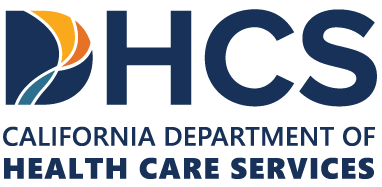How Affordable Housing Affects Drug Abuse
The affordable housing crisis in America has far-reaching consequences beyond economic concerns, with major implications for public health, particularly substance use disorders.
This page explores how affordable housing affects drug abuse and shows you how to connect with compassionate and evidence-based treatment for drug or alcohol addiction.
The Housing Crisis and Public Health Connection
Housing instability has a ripple effect on all aspects of health and well-being, particularly for vulnerable populations. When individuals lack stable, affordable housing, their capacity to address other needs, including mental health and substance use challenges, becomes severely compromised.
- Foundation for wellness. Stable housing provides the foundation upon which all other health interventions depend, serving as both a social determinant of health and a prerequisite for effective treatment engagement.
- Treatment continuity challenges. Without reliable housing, maintaining a consistent connection to healthcare providers, medication regimens, and support systems becomes nearly impossible.
The relationship between housing and substance use isn’t merely correlational, though. Research increasingly demonstrates causal connections in both directions. Housing instability can trigger or worsen substance use, while substance use disorders often jeopardize housing stability, creating a cycle that’s tricky to break without addressing both issues simultaneously.
The Link Between Housing Instability and Drug Abuse
Housing insecurity manifests in various forms, from literal homelessness to overcrowded living situations, substandard housing conditions, or spending unsustainable portions of income on housing costs. Each scenario creates conditions that can either initiate or perpetuate substance use disorders.
- Chronic stress and trauma: The persistent uncertainty of housing insecurity generates overwhelming psychological distress. This chronic stress activates neurobiological pathways associated with addiction vulnerability, as individuals seek relief through substances.
- Environmental risk exposure: Unstable housing often places people in environments where substance use is prevalent, increasing both access to drugs and exposure to high-risk use patterns.
- Psychological coping mechanisms: Many people turn to substances as a means of managing the emotional pain, anxiety, and hopelessness that accompany housing insecurity, creating patterns of use that can quickly escalate to dependence.
- Self-medication patterns: Housing instability frequently co-occurs with untreated mental health conditions, leading to self-medication with substances that provide temporary relief but ultimately worsen both conditions.
Research indicates that rates of substance use disorders among homeless young adults range from 39 to 70%, two to three times higher than in the general population. This stark disparity shows how housing vulnerability is associated with increased addiction risk.
How Affordable Housing Can Reduce Drug Abuse Rates
Stable, affordable housing creates multiple protective factors against substance use disorders. Affordable housing alleviates financial strain, eliminating the need to choose between necessities such as housing, food, healthcare, and medication. When people can meet their basic needs without undue strain, they’re less likely to turn to substances as coping mechanisms.
Housing provides a consistent, safe environment necessary for implementing recovery strategies and developing healthy routines incompatible with chaotic substance use patterns.
With a stable address and living situation, individuals can more effectively connect with and maintain engagement in substance use treatment services, including:
- Regular outpatient appointments
- Medication management
- Support group attendance
- Case management services
Stable housing promotes positive social connections and recovery-supportive relationships, protective factors against substance use.
A stable home environment supports the development of healthy identities and roles, providing alternatives to substance-centered social networks and activities.
The Housing First model, which prioritizes providing permanent housing without prerequisites of sobriety or treatment compliance, has demonstrated remarkable success in reducing both substance use and associated harms among formerly homeless individuals, contradicting concerns that unconditional housing might enable continued substance use.
Challenges in Accessing Affordable Housing for Those in Recovery
Despite the importance of housing for recovery, individuals with substance use histories face substantial barriers to accessing affordable housing options.
Discrimination and stigma are pervasive problems, with many landlords explicitly or implicitly excluding individuals with substance use histories despite fair housing protections. This discrimination drastically restricts already-limited housing options.
Drug-related offenses on criminal records create nearly insurmountable obstacles for housing applicants, with many property owners and housing programs excluding individuals with such histories.
Substance use disorders frequently disrupt employment, damage credit scores, and deplete financial resources, making it challenging to meet standard rental requirements like security deposits, proof of income, and credit checks.
Affordable housing is often available, but it is frequently located far from necessary treatment resources, leading to transportation barriers that complicate recovery maintenance.
Public housing programs and private rental markets typically maintain zero-tolerance policies regarding substance use, creating untenable situations for those in early recovery who face immediate eviction if they experience relapse, often without consideration of treatment engagement or recovery efforts.
The shortage of recovery-supportive housing causes a gap in the continuum of care, with many people discharged from treatment programs directly into homelessness or precarious living situations that dramatically increase the risk of relapse.
Solutions and Programs That Bridge the Gap
Innovative approaches that address the connection between housing and substance use have been highly successful.
Housing First programs challenge traditional approaches by providing immediate access to permanent housing without requiring sobriety as a precondition. This approach improves substance use outcomes over time while reducing public system costs.
Supportive housing models combine affordable housing with integrated support services, creating environments where individuals can address substance use issues while maintaining housing stability.
Specialized recovery residences provide structured, substance-free living environments with peer support and accountability, serving as transitional settings between treatment and independent living.
Some innovative programs provide stable housing while practicing harm reduction principles rather than requiring abstinence, reducing overdose deaths and public health costs while gradually engaging residents in treatment.
Communities implementing comprehensive approaches that coordinate housing resources with treatment access deliver measurably better substance use outcomes and recovery rates compared to those addressing these issues separately.
How The Retreat South Coast Supports Long-Term Recovery
At The Retreat South Coast, we appreciate that housing stability is a cornerstone of effective recovery, integrating housing considerations throughout our treatment approach.
Our comprehensive assessment process evaluates housing stability as a key recovery factor, identifying specific needs and barriers early in the treatment planning process. Dedicated staff help individuals access housing resources, complete applications, and develop realistic housing plans aligned with their recovery goals and financial circumstances.
We maintain active relationships with supportive housing providers, landlords, and rental assistance programs to create viable pathways to housing for those in recovery.
Every aftercare plan explicitly addresses housing stability with concrete steps for securing or maintaining appropriate housing arrangements.
Educational programming includes practical information about housing rights, responsibilities, and available resources specific to individuals in recovery, empowering them with knowledge and self-advocacy skills.
When appropriate, we work with family systems to create stable transitional housing arrangements that support recovery maintenance while addressing family dynamics.
If you or someone you love needs help dealing with recovery and housing stability, contact The Retreat South Coast at (949) 612-4789 for immediate assistance and compassionate care.









